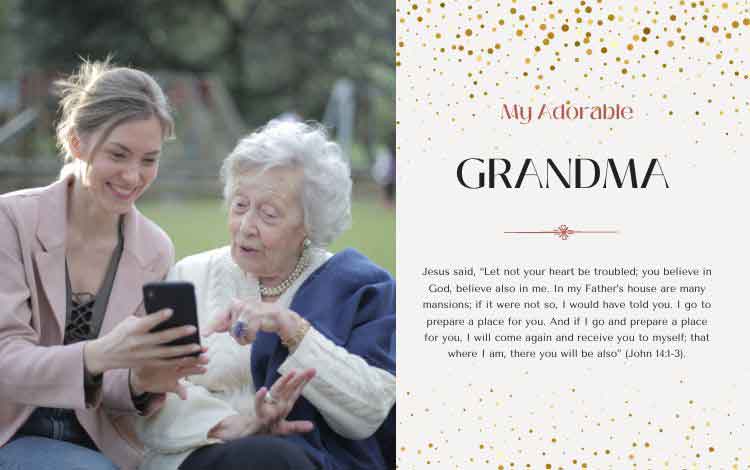A eulogy is a speech delivered by a family member or a close family friend in praise of a person who has recently passed away. Eulogies are usually given as part of a funeral service.
There are five helpful hints on how to write a eulogy: 1) understand the purpose of the eulogy, 2) prepare the information for eulogy, 3) write the eulogy, 4) practice the eulogy, and 5) study a sample of a eulogy.

How To Write a Eulogy With an Example?
A eulogy is a brief summary of a loved one’s life. To write a great eulogy, just follow the five helpful hints below!
1. The Purpose of the Eulogy
The main purpose of the eulogy is to give a tribute to a loved one who has passed away. It is a time to reflect upon one’s life story and the unique talents and gifts that person possessed.
Another purpose for the eulogy is to allow family and friends to say goodbye to their loved one and to reflect upon the life and memories they shared together.
2. The Preparation To Write A Eulogy
If you have been asked to deliver a eulogy, then it is important to remember the two main purposes of a eulogy – to document a person’s life story and to say farewell as you reflect upon the life and memories of that person.
If you know the person well, then you will find it relatively easy to write the eulogy. However, if you have been asked by the family and you do not know the person well, then you will need to do some research.
Here are some questions that may help you begin the process of preparing the eulogy. As you reflect upon these questions, take some time to write them down on a piece of paper.
- Where did the deceased person grow up (looking for some history about birth and early years)?
- What were some of the idiosyncrasies of the deceased person (eg. distinguished laugh, unique habit, interesting hobby, etc)?
- What will you miss or remember most about the deceased person?
- Is there a funny or touching story you remember about the deceased person?
The eulogy is a segment in the funeral services that brings the deceased person back into the minds of those attending the service. It is a time to remember, pay tribute and reflect upon the deceased person’s life.
3. The Writing of The Eulogy
Before you actually write the eulogy, it would be best to plan an outline for the eulogy.
The outline for the eulogy is a simple structure that will help you share your thoughts about the deceased person in a cohesive and sequential fashion. In other words, an outline is a roadmap for you to follow as you present your tribute of the deceased person at the funeral service.
Your outline could look something like this:
- Introduction
- The deceased person’s early life and education
- The deceased person’s work and family life
- The deceased person’s hobbies and interests
- The deceased person’s qualities, achievements and legacy
- Conclusion
Once you have planned your outline, you will need to add content to your outline. I would suggest that you leave the introduction and conclusion to last.
When you write the eulogy, use meaningful words and write as you would speak. By writing as you would speak, people will relate to you and your thoughts in a natural way as they follow what you are saying.
If you are struggling to put a thought on paper, take some time to say it out loud or ask yourself, “How can I say this in a simple and natural way?” As you work it out, put it on paper and see how it sounds.
A touching and meaningful eulogy is usually a eulogy that is well prepared and well timed. In other words, it’s not too short or too long. Five to ten minutes is plenty of time to present a great tribute. This will require about one thousand to fifteen hundred words.
4. The Practice of The Eulogy
Once you have finished writing the eulogy, spend some time practicing the eulogy. You can do this by reading out loud the eulogy. While practicing the eulogy, you may find that you need to edit some of your content. That’s fine.
The more you practice the eulogy, the more comfortable you will be when you deliver the eulogy on the day.
Delivering a eulogy can be stressful and emotional. If you have prepared well and practiced considerably, then this will help you deal with the stress and the emotions on the day.
Some final comments: If you prepare well and take time to practice, then you will put yourself in the best place to share a touching and meaningful eulogy.
If you need further help to write a touching and meaningful eulogy, you can check out – How To Write And Deliver A Great Eulogy.

5. The Sample Eulogy
The sample eulogy below is only a brief summation of the original and it follows the outline above.
I will miss my friend, James.
I first met James while we were at primary school but it wasn’t until our adult years that we became very close friends.
James was born in August 1941 and he completed his primary schooling in a small country school. I always remember James had a soft spot for the disadvantaged children. Often he would stand up for them when someone would pick on them.
When James left high school, he started his own business. He was very successful in his business and this enabled him to invest in property. He met and married Julie in his early twenties. James and Julie had great difficulty having children. It was during this time that they began attending a Baptist Church. James and Julie found God in a real and life-changing way.
Thinking that God had a greater purpose for their lives, James sold his business and enrolled in seminary to train for the ministry. God was good to them and they were called to a small Baptist Church where I was able to reconnect with James again and form a lasting friendship with him and his family.
James was a dedicated pastor and a loving husband and father. He loved sharing God’s word with the people in our small community. He was loved and respected by all.
Also, he loved his wife Julie and his four children. He always had a good word to say about them. He deeply loved his children and would do anything possible to help them in their growing years. He always wanted the best for his children. He was a good, firm and loving father.
James was a busy pastor and found it difficult to have a hobby or an interest outside of ministry. However, in his later years, he developed a great love for photography. He enjoyed taking great photos of nature. I can remember him telling me that photography was one way to escape the pressures of ministry. He would spend hours looking for that perfect shot.
What stands out most when I think of James? Well, he was a loving husband and father and a dedicated pastor. He was not perfect. He had his struggles in life. One thing I can always remember is that he wanted to make good decisions in life for his family and church community. He also wanted to give good and godly advice to those who sought his counsel.
I will miss my friend, James. Yes, I know all of you here today will miss him also.
However, we know that we will see him again when our time on this earth will come to an end and we too will be with him in heaven.
As Jesus said, “Let not your heart be troubled; you believe in God, believe also in me. In my Father’s house are many mansions; if it were not so, I would have told you. I go to prepare a place for you. And if I go and prepare a place for you, I will come again and receive you to myself; that where I am, there you will be also” (John 14:1-3).
Yes, I will miss my friend James but I know that one day I will see him again.